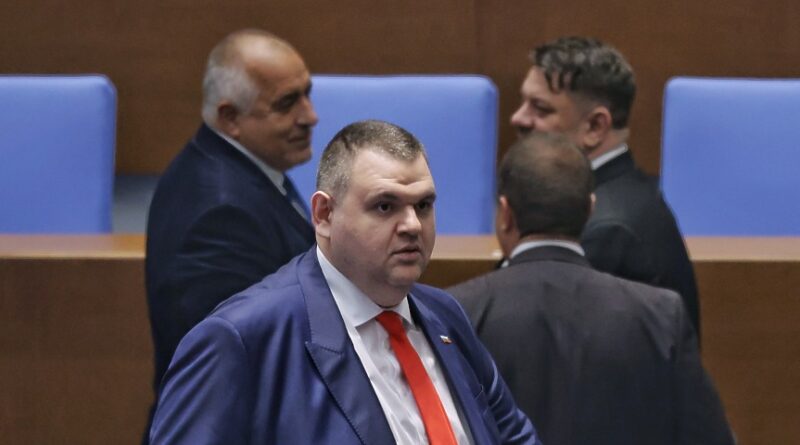The Parliamentary Crisis in Bulgaria: The End is Near
Bulgaria’s parliamentary crisis appears to be approaching an early but turbulent conclusion. The key players seem increasingly weary, and recent developments underscore profound structural and political challenges. After today’s vote, it became clear that the “Peevski phenomenon” has faltered, marking a rare but significant setback. Peevski not only failed to secure the necessary votes for his preferred candidate, Kiselova, but this failure also revealed cracks in coalition strategies, particularly within the Bulgarian Socialist Party (BSP).
Peevski’s Miscalculation
Known for his reputation as a political tactician, Peevski misjudged his ability to marshal support, falling just one vote short of the 119 required. His overconfidence backfired, disrupting his strategy of staying detached and waiting for the opportune moment to assert control. Though Peevski may attempt to recover the lost vote through negotiations or financial inducements, this episode stands out as a rare misstep in his otherwise successful political career.
The GERB-Peevski Nexus and DB’s Predicament
This episode further illuminates the deep coordination between GERB (Citizens for European Development of Bulgaria) and Peevski. For the Democratic Bulgaria (DB) coalition, now part of the larger PPDB coalition, this should serve as a stark warning. Ongoing negotiations with GERB risk undermining DB’s standing as a credible anti-corruption and pro-European political force.
Kiselova, despite her professional qualifications, has emerged as a polarizing figure. Her association with parliamentary intrigue has tarnished her image, solidifying the perception of her as an “MP for hire.” This association has significant implications for her political future and raises questions about the broader integrity of parliamentary processes.
Structural Challenges: Caretaker vs. Regular Governments
The crisis goes beyond the parliamentary leadership struggle, highlighting broader governance issues and the potential appointment of an interim prime minister. Bulgaria’s caretaker government operates with powers that, when aligned with President Radev, can surpass those of a regular government. This dynamic undermines parliamentary oversight, as interim ministers and the caretaker cabinet cannot be dismissed by Parliament, creating an accountability vacuum. These structural imbalances raise serious concerns about the democratic functioning of Bulgaria’s political system.
Pro-Russian Forces and Their Fragmentation
Comparisons to the unification of pro-European forces in countries like France, Austria, and Romania to counter anti-European movements are only partially applicable to Bulgaria. Unlike its European counterparts, Bulgaria’s pro-Russian forces, exemplified by the Vazrazhdane (Revival) Party, lack cohesion and dominance in the anti-European narrative. Vazrazhdane’s inability to monopolize this space has allowed competitors on both the left and right to erode its influence.
Additionally, Vazrazhdane appears to have reached an electoral plateau. Its leadership struggles to leverage anti-corruption and anti-establishment rhetoric effectively, diminishing its appeal. This fragmentation reduces the immediate threat posed by anti-European forces and lessens the urgency for a unified pro-European front in Bulgaria.
Kremlin’s Strategy and Influence in Bulgaria
Russia’s influence in Bulgaria has evolved from proactive engagement to a more destructive approach focused on eroding pro-European and Atlanticist values. Figures like Peevski and Borissov, labeled as “Atlanticists” and “Europeans” despite their associations with corruption, have inadvertently harmed Bulgaria’s Euro-Atlantic alignment. Their reputations undermine public trust in these ideals, doing more damage to pro-European sentiment than direct anti-European efforts by Moscow.
While President Radev remains a potential Kremlin ally, Russian foreign policy towards Bulgaria suffers from the lack of an ideological foundation comparable to the Soviet era. Current Russian strategies rely on corruption and situational alliances, which, while effective in the short term, lack the consistency needed for long-term influence.
The parliamentary crisis signals a pivotal moment for Bulgaria. It highlights the need for a reevaluation of political priorities and a recommitment to transparency and democratic values. Peevski’s miscalculation and the broader governance challenges underscore the urgency of reform. Whether Bulgaria will seize this opportunity to strengthen its democratic institutions or continue down a path of political fragmentation and external influence remains an open question.




